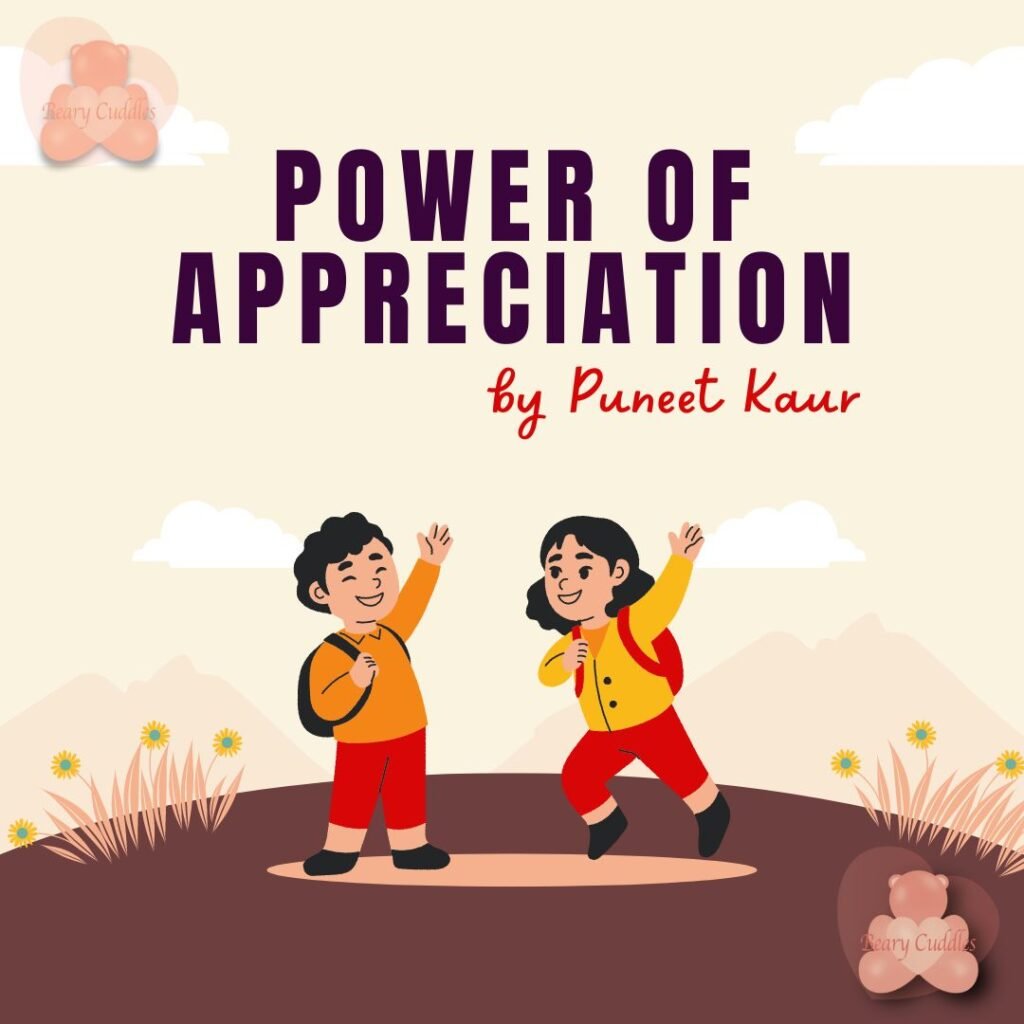
Significant Leaps to Appreciation
Over the years, growing up as a child, I carried a belief that you are appreciated and praised in life only when you are successful. Award is given only to winners. Tough competitions and struggles divided my mindset into only two categories- winners and looser. Praise and acknowledgement is served only to the best. The rest land nowhere. Either there is disappointment and loss or there is an applause and award. This ended up to create my fighter ideology.
Unless I performed well, I was never satisfied. Love was unconditionally offered but praise had to be earned not just with efforts and hard work but getting brilliant an outstanding results. Appreciation was conditional. If I do well, I have reward. And if I do bad, I get nothing. The same traditional concept raised me into a college achiever.
My parents endless efforts and sacrifices added to my guilt if I under achieved. But my journey and struggles somewhere remained unnoticed. I was never criticized, punished or ignored. But had to level up to a commendable benchmark which when not achieved restricted my appreciation or celebration. High hopes set on me to walk the achievers platform only brought disappointments and low self-esteem. My college course and professors somewhere brought back the spirit of determination and achievement as the course I studied offered self-exploration and I realized that I had a long way to go. For the first time, I got remarks in my files such as:-“painstaking efforts, praiseworthy thoughts, written with efforts and dedication” instead of just good, very good, excellent or just a signature. For the first time I felt somebody appreciated my hard work and efforts. It greatly motivated me back to become progressive and successful in pursuing my career.
To meet social expectations and fulfill personal needs of recognition, like many kids I put myself through stifle pressure and tireless efforts.
Usually, in the long run children who handle such situations end up killing their spark by giving up on their dreams or exhaust themselves to prove their capacity. Either of which is unhealthy. I chose to over work and devote my energies solely into this race.
Grades, marks were of great value and to get into the best of institutions, one had to crack competitive exam. But somewhere I found relief amidst all this pressure by focusing on doing what I enjoyed. But my basic zest of achievement that was ingrained so deeply returned back when I got a child of my own. I never negated or criticized her but internally had expectations from her too. Soon to realize that I do not want her to go through the same thing. I was open to the view due to my exposure and learnings that I have to be her support. She will take her own time to reach her full potential and I will not pressurize her for those outstanding results. I clapped at her every step when she learnt to walk, talk, play and do her tasks but slowly with time when academic pressure came, I forgot to appreciate that her improper circles also need appreciation.
The fact that the little things that are not perfect also deserve appreciation. Only then they grow better. It’s a basic human need.
In life also, we must have gratitude for every little thing. Power of appreciation gives encouragement, positivity and new hope in times of pain, frustration and anger and allows the person to constantly stay motivated when one has a lost sense of direction.
“It is like a bridge to victory which we fail to acknowledge” or “a rechargeable battery that repowers you” when everything is grey and cloudy.
It shifts our focus to see the good instead of just focusing upon the missing puzzle pieces thereby working more effectively in developing positive behavior and habits. A very positive environment is created and the child cannot get a better space than this to grow. We tend to overlook its advantages in the long run under the belief that it may spoil the child but it truly helps to shape the personality of the child to become progressive, more positive, resilient, more unstoppable and open to new experiences in life. So as rightly said “there are things to say besides just good job” and “praise can transform a prison into a temple”.
-By Puneet Kaur
Identifying and Fostering Linguistic Intelligence in Children

Identifying and Fostering Linguistic Intelligence in Children
Every child is a unique tapestry of intelligences, each thread representing a potential genius waiting to be uncovered. One of these threads is Linguistic Intelligence, a cornerstone of Howard Gardner’s theory of multiple intelligences. Linguistic Intelligence involves a deep affinity for words, language, and communication. As parents and caregivers, recognizing and fostering this intelligence can significantly impact a child’s development and lifelong success.
In fourth grade, our teacher assigned us a task to write five lines about a proverb. I lacked confidence in my writing and asked my friend to read my work aloud. Surprisingly, our teacher praised her and identified her as a natural writer.
That was the first time my linguistic skills were recognized. Although I won prizes for writing, I didn’t give much attention to my talent which would have led me to be a Genius in that with ease!
Guiding children to help them realize their linguistic potential can make them a perfect Genius in his zone.
Identifying Linguistic Intelligence
Verbal Prowess: Children with linguistic intelligence display a remarkable aptitude for language from a young age. They might have an extensive vocabulary, use complex sentence structures, and enjoy sharing stories or explaining concepts.
Love for Reading: A strong attraction to books and reading is a clear indicator. These children might spend hours engrossed in novels, magazines, or any written material.
Articulate Expression: Linguistically intelligent children are adept at articulating their thoughts and feelings. They might prefer verbal communication over other forms and use eloquent language to express themselves.
Storytelling Skills: If your child often narrates imaginative tales or creates intricate narratives, it’s a sign of their linguistic aptitude. They may enjoy weaving stories out of thin air or adapting real-life events into captivating narratives.
Word Play and Humor: A keen sense of wordplay, puns, and humor can be a strong indicator. These children might delight in making up clever rhymes, puns, or engaging in word-based jokes.
Listening Skills: Children with linguistic intelligence tend to be attentive listeners. They catch nuances in language, tone, and meaning, which contributes to their own effective communication.
Fostering Linguistic Intelligence
Encourage Reading: Provide access to a wide variety of reading materials – books, magazines, newspapers, and more. Engage in discussions about their reading experiences to enhance comprehension and critical thinking.
Storytelling Opportunities: Encourage your child to create stories, whether through writing or verbal expression. This nurtures their creative thinking and linguistic skills.
Word Games: Play word games like Scrabble, crossword puzzles, or language-based apps. These activities are not only enjoyable but also enhance vocabulary and language comprehension.
Journaling: Introduce the habit of journaling. This helps children articulate their thoughts, reflect on their experiences, and refine their writing skills.
Public Speaking and Debating: Enroll your child in activities that involve public speaking or debates. These experiences boost confidence, fluency, and effective communication.
Language Exposure: Introduce them to different languages and cultures. Exposure to diverse linguistic patterns enhances their sensitivity to language nuances.
Linguistic Intelligence is a window into a child’s exceptional linguistic potential. As parents and caregivers, recognizing and nurturing this intelligence opens doors to a world of communication, creativity, and intellectual growth. By doing this you make him a Genius in his zone of genius. Embrace the power of words and watch your child’s linguistic genius flourish, enriching their life in myriad ways.
Remember: “A child’s mind is not a container to be filled but rather a fire to be kindled.” – Dorothea Brande






